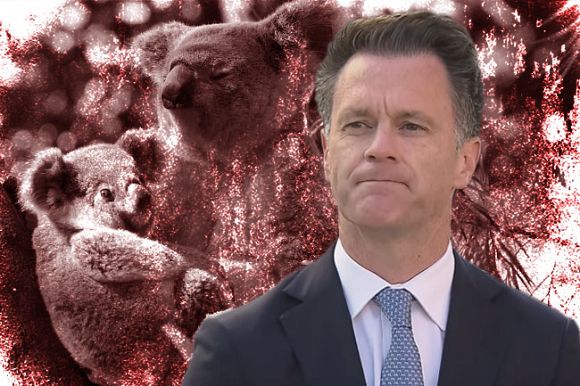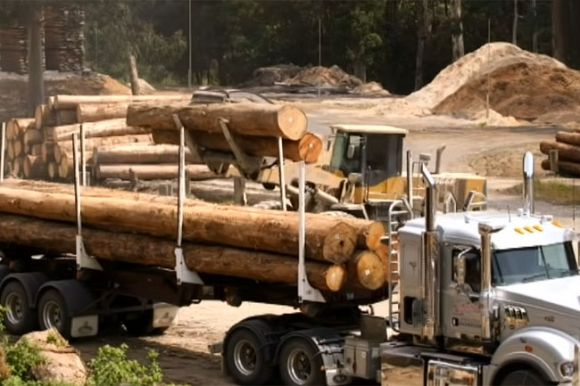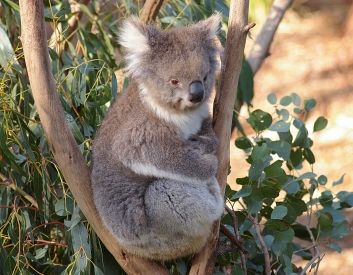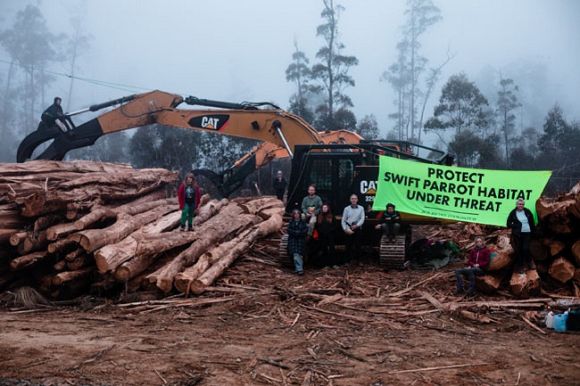Australia is rapidly becoming a national graveyard for the nation’s unique, iconic wildlife. Neither major party nor the Federal Greens have ensured environmental issues are the nation’s top priority policies.
At a time when the natural world is under siege, the lack of any substantive action, given the current status of Australian biodiversity with ongoing losses caused by native forest logging, is bordering on criminal.
Politicians ignore intergenerational equity and the precautionary principle — otherwise, there would be immediate action in response to the tsunami of threats facing the Australian environment. Federal legislation is a farce, with the forestry industries given a free pass on protecting forest fauna and flora.
Australia is scheduled to host the Global Nature Positive Summit in Sydney in October, focused on tackling biodiversity loss. Co-hosted by the NSW Government, given the destruction of the state’s native forests, plus massive urbanisation destroying koala habitats, the event is yet another gigantic hypocrisy.
The NSW Audit Office has just released an audit focused on the state’s 1,100 native animals, plants and ecological communities at risk of extinction. The audit indicates funding to the environment department’s conservation efforts was cut by 25%.
One of the findings concluded:
‘[The Department of Climate Change Energy and Water] did not deliver any conservation activities, including monitoring, for 69% of threatened species and ecological communities in 2022–23.’
The summit is advertised as a ‘way for businesses to showcase their funding commitments’.
Yet another talkfest with the same old outcomes; the same old stuff. Remove barriers to projects designed to destroy wildlife habitat, and bring in a nature-based market that allows for dollars and unsuitable habitats to “offset” the destruction. Changing the old ‘one-stop shop’ policy (an environmental disaster removing any prohibitions to developers) to a new “no-stop” policy is the name of our governments’ game.
As Professor Hugh Possingham, chief counsellor with the Biodiversity Council writes:
Nature is in crisis around us and the change is happening quickly. Since the turn of the century, populations of our threatened species have, on average, declined by 60%.
The annual fall in threatened species numbers is around 4%. If the economy, employment levels, longevity, or people’s superannuation was falling at 4% per year for 20 years, there would be a national outcry.
It is time for the community to be angry about the mismanagement of nature.
The evidence of our governments’ abject failures to address the severity and ongoing destruction of our life support systems is overwhelming.
In NSW, Labor’s promised Great Koala National Park is being logged to the ground. The Minns Government is dedicated to ignoring scientific warnings, public protest and the loss of ecosystems catastrophic biodiversity losses.
The NSW Forestry Corporation, responsible for the industrial logging of the state’s native forests has been described as a “rogue agency”, a fitting description given that relevant legislation has been framed (by both Labor and Coalition Governments) to ensure legal challenges are destined to fail. Legislation has been passed which effectively quarantines the corporation from legal action by the concerned public.
Despite several attempts at legal challenges by the North East Forest Alliance (NEFA) and the Indigenous Justice Advocacy Network, the Land and Environment Court judgements continue to deny any requirement for native forest logging harvest plans to take into account the requirements of ecologically sustainable forest management (ESFM).
Requirements to fulfil ESFM are extensive, intergenerational and recognise the best available scientific knowledge. The provisions also recognise the changing status of nature.
Instead, the judgements rule the Coastal Integrated Forestry Operations Approval (CIFOA) made in November 2018 is the only required approval of ESFM.
What this means is no consideration of the 2019-2020 bushfire death toll of incinerated wildlife, estimated at 3 million, or drought, future fires and climate change impacts. The 2018 approval will do just fine. Industrial logging has the green light for two decades.
In Queensland, it’s not the forestry industry but beef, windfarms and urbanisation. The Guardian reports on research showing that 2 million hectares of Queensland forest have been destroyed in five years between 2016 and 2021.
Gemma Plesman, a senior campaigner at Greenpeace Australia Pacific, said the report documented deforestation on a “frightening” scale. She said the state’s annual statewide land cover and tree study (SLATS) shows land clearing was driven by beef production.
The Guardian reported:
‘Research finds almost all land cleared in the state between 2016 and 2021 in areas where threatened species habitat “likely to occur”.’
Plesman says the data is shocking and should be a wake-up call:
“They must address what has made Australia a global hotspot for deforestation.”
Queensland’s Wilderness Society says that the impact of land clearing is pushing iconic native species like the koala, greater glider and the red goshawk towards extinction.
Wind farms are also wreaking havoc on koala habitat. A planned wind farm at Lotus Creek will destroy some 345 hectares of prime koala habitat. The site has been described as “worthy of becoming Queensland’s Great Koala National Park”. Pristine habitat, with plenty of nesting hollows, supports a thriving ecosystem of wildlife according to conservationists.
Shockingly, according to the Daily Mail, wind turbines in NSW and Queensland are killing rare Australian wildlife with wind farm operators being trained to “kill” koalas humanely. The article describes the situation as a massacre of wildlife no one wants to talk about. The report is hard to read, demonstrating a catastrophic situation for wildlife, as each wind farm results in a ‘grim body count’.
Let’s not forget Victoria where logging ceased at the end of last year. But did it?
ABC’s Michael Slezak reports on the newly established Healthy Forests Foundation Ltd. According to ASIC documents, the core purpose is ‘the protection and enhancement of the natural environment’ with part of its purpose to promote First Nations forest management.
Monique Dawson, former chief executive of VicForests, is head of the foundation (which is not a foundation but an ASIC-listed public company). Board members are all involved in the timber industry.
As much of Victorian logging has taken place on the traditional lands of the Dja Dja Wurrung people, chair of the Dja Dja Wurrung corporation, Rodney Carter, says his people should ‘take over the management of forests across the Dja Dja Wurrung nation [including] removing trees using industrial logging machinery’. Although he has no formal links to the newly formed foundation, Carter worked with Dawson when she was at VicForests.
According to ABC News:
‘[Carter's] organisation calls the removal of trees from country “cultural thinning” — part of a broader strategy known as “forest gardening”.’
Then there’s Tasmania, where the destruction of old-growth forests can only be described as a crime against nature. This week, globally recognised environmentalist Bob Brown was fined $500 for trying to protect habitat of the critically endangered swift parrots, now being eradicated by forestry operations in that state.
Brown advised loggers that the trees they were about to log were swift habitat and should not be logged. But this action is trespassing according to Tasmanian law, so Brown was convicted and sentenced to a fine. He intends to appeal.
As the Bob Brown Foundation says:
‘Protecting nature should not be a crime. Courageous Earth defenders should celebrated — not punished.’
A war against nature is being waged in Australia. Passionate young and old Australians are being arrested, going to prison, chaining themselves to bulldozers, and facing off against police and loggers. Each day, creatures are driven out of their habitats. If they survive, the animals become refugees in their own homeland. Competition for habitat is fierce after the Black Summer bushfires and the continuing eradication of habitat by logging.
As Professor Possingham says:
‘Less than one in every thousand dollars in the federal budget is going to on-ground projects to protect the nature that... we depend on for the air we breathe, the water we drink and the food we eat.’
Sue Arnold is an IA columnist and freelance investigative journalist. You can follow Sue on Twitter @koalacrisis.
Related Articles
- Scientists warn logging will lead to extinction
- Renewable energy industry runs roughshod over forests
- The burning controversy of the RET review: Australian forest destruction
 This work is licensed under a Creative Commons Attribution-NonCommercial-NoDerivs 3.0 Australia License
This work is licensed under a Creative Commons Attribution-NonCommercial-NoDerivs 3.0 Australia License
Support independent journalism Subscribe to IA.
















